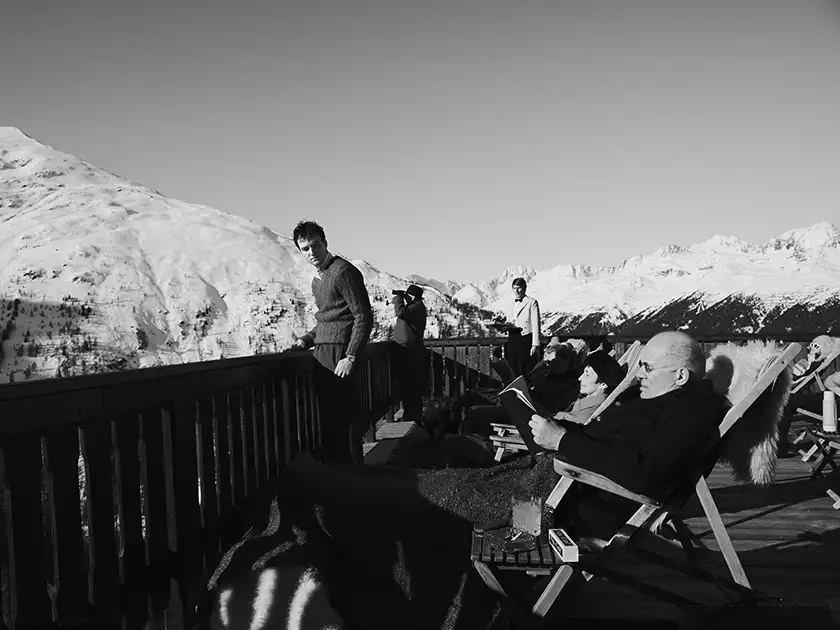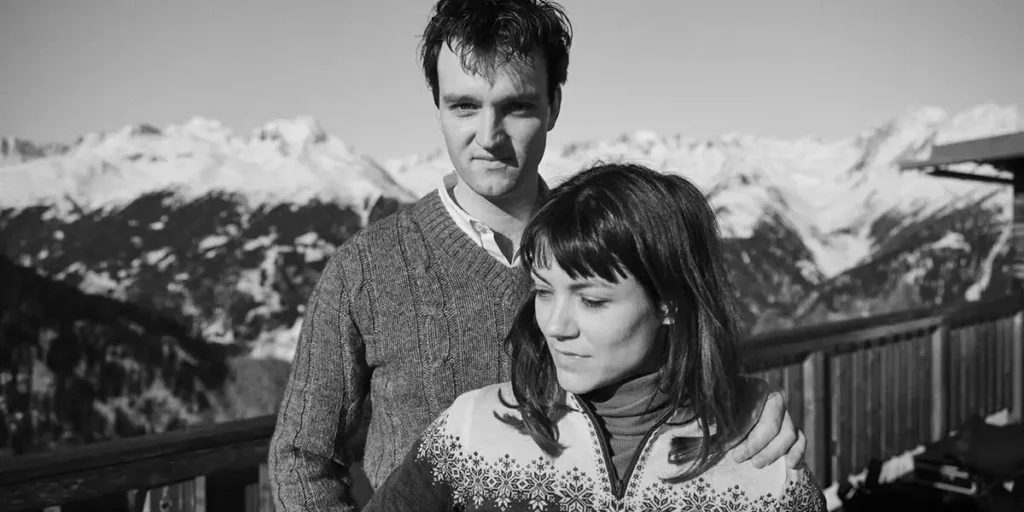The Universal Theory is not a typical multiverse film; It is a cinematic fever dream featuring stellar acting, a perfect score, and a tragic original story.
Director: Timm Kröger
Genre: Thriller, Mystery
Run Time: 118′
World Premiere: September 3, 2023 at the Venice Film Festival
US Release: September 27, 2024
UK Release: December 13, 2024
Where to watch: in US theaters and in UK & Irish cinemas
One of the sure ways to immerse an audience in a film’s distinct time period is to use a filmmaking style from the same era. The Universal Theory (Die Theorie von Allem) takes place in the Swiss Alps in 1962, and it is visually and sonically reminiscent of movies from the ‘60s. Cosima Vellenzer’s production design bolsters Roland Stuprich’s cinematography, and Diego Ramos Rodriguez’s score makes The Universal Theory feel like a relic unearthed from long-forgotten archives.
But the movie, which premiered at the 2023 Venice Film Festival, is no artifact; it’s a masterful work of storytelling that mixes sci-fi, noir, and mystery in a truly unpredictable way.
Johannes Leinert (Jan Bülow) is a Physics doctoral student whose dissertation about a possible multiverse is a work of rubbish to his doctoral supervisor, Dr. Strathen (Hanns Zischler, of Munich). At a hotel in the Swiss Alps, Johannes encounters strange events and people that make him question the validity of his research and the trustworthiness of those who would help him earn his doctorate. A particularly mysterious woman, Karin (Olivia Ross, of The Old Guard), becomes Johannes’s love interest. Within The Universal Theory’s two hour, black-and-white tale is stellar acting from Jan Bülow, a perfect score, and a tragic original story.
Perhaps the most impressive feat of The Universal Theory is just how committed the filmmakers were to making this film a product of its time period. Sweeping establishing shots of snow capped mountains and a long opening credits sequence set the tone early, but everything from the film score to the actors’ performances is an homage to a bygone era of cinema. Seeing this style in a modern movie is a treat, and Timm Kröger’s directing leaves no loose ends in the final product.
The events of The Universal Theory are a smooth spiral downward. They start with a hopeful (and perhaps naive) protagonist whose greatest concern is convincing Dr. Strathen—and himself—that his scholarship is worthwhile. By the end, though, Johannes is a man battered and broken by the unbelievable, by what he theorized could be possible without speculating the impact it would have on him personally. The film captures the descent of a bright, young mind into hopelessness, and it does so beautifully.

The Universal Theory is not a typical multiverse film. Its old style is the most stark difference, but it’s also not thematically similar to Deadpool & Wolverine. While many recent installments use the multiverse for superhero fan service, The Universal Theory puts a sinister spin on the idea: it’s not some joyous opportunity for connection with alternate selves, but a world wherein multiversal Johanneses and Karins conspire against each other. It is more science than fiction, and situates the multiverse as a well-kept secret, not a portal to a more serene life.
In all, The Universal Theory is an excellent movie that is equally gripping, illusive, and dramatic. The filmmakers turned a well-written story into a cinematic fever dream, not sparing viewers’ hopes for a fun multiverse story but producing one unsettling, surreal experience.
The Universal Theory opened in US theaters on September 27, 2024. The film will be released in UK and Irish cinemas on December 13, 2024.

